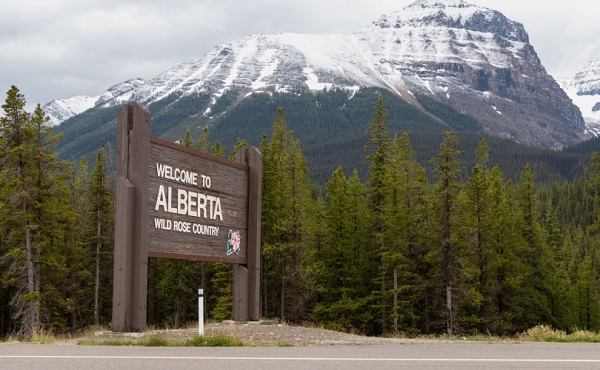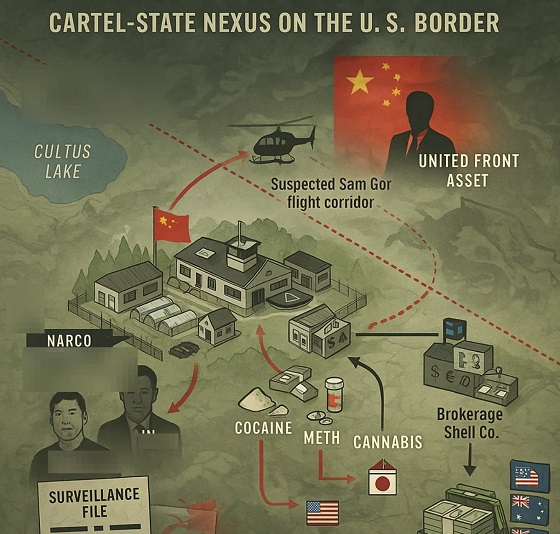Alberta
Love Alberta? Listen and share “Sweet Alberta”!

Editor’s Note: “Sweet Alberta” may be the perfect song to pull you out of your funk and re-aquaint you with the province you love.
Original Article:
If you’re a music lover you know that sometimes when you’re feeling down a good song played at just the right time can turn it all around. If you think of all that’s gone wrong for the province of Alberta during 2020 you might say this whole province could use a hug and a great tune! Just as it looked like the oil and gas industries might be able to turn a corner, a dispute between Russia and Saudi Arabia early this year resulted in an historic downturn. Then.. COVID. Need we say more? Well hopefully we can all get a hug from someone we love. As for the tune, here’s a brand new option produced by Alberta artists.. for the entire Province of Alberta to enjoy. It’s called “Sweet Alberta” and it just might be that special tune that becomes an anthem. It’s that good. Co-written by Red Deer’s Scott Wiber (who also plays base on this track) and a fellow musician from London, England, this new single is officially out today (Friday, August 7).
Jesse Roads also from Red Deer is the lead singer and front man for this production. Based in Red Deer, Jesse’s a been touring Alberta and beyond for over 20 years. Right up until COVID swept artists off the stage back in March he was filling up bars and performing for raucous audiences wherever he went. Check out this tune and you’ll see why this should be the song that takes you out of the summer of 2020!
Here are a couple of other tunes performed by Jesse Roads any new fan is going to want to hear.
Enjoy a taste of “No Love” a Jesse Roads classic.
This “COVID” concert was recorded live at The VAT this spring. Check it out to get a real good taste of Jesse Roads and his fabulous band. (Click ahead to the 41 minute mark for the start of the music)
Originally published August 8, 2020.
Alberta
Alberta group releases referendum question on leaving Canada, becoming ‘sovereign country’

From LifeSiteNews
‘Do you agree that the Province of Alberta shall become a Sovereign Country and cease to be a province of Canada?’ reads the proposed question from Alberta Prosperity Project, which says it has over 240,000 pledges to vote ‘yes’ on the referendum.
A group behind a citizen-led movement for Alberta’s independence from Canada in light of increasing frustration with the Liberal federal government made public the question it will put to a future referendum that could come in 2026.
The Alberta Prosperity Project (APP), which bills itself as a sovereignty advocacy group, released Monday the question it wants on a referendum.
“Do you agree that the Province of Alberta shall become a Sovereign Country and cease to be a province of Canada?” the question reads.
Thus far, the group says it has over 240,000 pledges from people who say they will vote “yes” to the referendum question. The group wants to have at least 1 million signatures, which is more than the 600,000 needed before a citizen-led petition would be allowed to be brought before Alberta’s legislature.
The APP says its mission is to “empower the Alberta government to restructure Alberta’s relationship with Canada by educating and mobilizing public support for Alberta Sovereignty.”
As reported by LifeSiteNews, Alberta Premier Danielle Smith said her conservative government will allow but not support a citizen-led referendum on independence.
Smith’s comments came after she said recently that she would consider taking serious steps for Alberta to have greater autonomy from Canada after the Liberals were re-elected to a fourth consecutive term.
Asked about the APP’s statement, Smith said, “I’ve made my position clear.”
“I support a sovereign Alberta within a united Canada, and it’s my job to see if we can get a new deal with Ottawa, so that I can convince more Albertans to feel the same,” she said to the press.
Her announcement also comes just days after her United Conservative Party government announced Bill 54, which sets the groundwork for possible independence referendums by making such votes easier to trigger. If passed, the bill would lower the signature threshold from 600,000 to 177,000. It is now in third reading.
As it stands, Albertans can call a referendum under the Referendum Act and the Citizen Initiative Act, but in order to trigger such a vote, citizens would first have to collect signatures from 20 percent of eligible voters (about 600,000 citizens) within just 90 days and do so on an official government-approved petition.
Some pre-election polls have shown independence sentiment on the rise among Albertans, with over 30 percent favoring a move toward sovereignty.
The calls for independence have grown since Liberal leader Mark Carney defeated Conservative rival Pierre Poilievre, who also lost his seat in the 2025 federal election. In Alberta, almost all of the seats except two went to conservatives.
Carney, like former Prime Minister Justin Trudeau before him, said he is opposed to new pipeline projects that would allow Alberta oil and gas to be unleashed. Also, his green agenda, like Trudeau’s, is at odds with Alberta’s main economic driver, its oil and gas industry.
Alberta
Alberta’s oil bankrolls Canada’s public services

This article supplied by Troy Media.
 By Perry Kinkaide and Bill Jones
By Perry Kinkaide and Bill Jones
It’s time Canadians admitted Alberta’s oilpatch pays the bills. Other provinces just cash the cheques
When Canadians grumble about Alberta’s energy ambitions—labelling the province greedy for wanting to pump more oil—few stop to ask how much
money from each barrel ends up owing to them?
The irony is staggering. The very provinces rallying for green purity are cashing cheques underwritten not just by Alberta, but indirectly by the United States, which purchases more than 95 per cent of Alberta’s oil and gas, paid in U.S. dollars.
That revenue doesn’t stop at the Rockies. It flows straight to Ottawa, funding equalization programs (which redistribute federal tax revenue to help less wealthy provinces), national infrastructure and federal services that benefit the rest of the country.
This isn’t political rhetoric. It’s economic fact. Before the Leduc oil discovery in 1947, Alberta received about $3 to $5 billion (in today’s dollars) in federal support. Since then, it has paid back more than $500 billion. A $5-billion investment that returned 100 times more is the kind of deal that would send Bay Street into a frenzy.
Alberta’s oilpatch includes a massive industry of energy companies, refineries and pipeline networks that produce and export oil and gas, mostly to the U.S. Each barrel of oil generates roughly $14 in federal revenue through corporate taxes, personal income taxes, GST and additional fiscal capacity that boosts equalization transfers. Multiply that by more than 3.7 million barrels of oil (plus 8.6 billion cubic feet of natural gas) exported daily, and it’s clear Alberta underwrites much of the country’s prosperity.
Yet many Canadians seem unwilling to acknowledge where their prosperity comes from. There’s a growing disconnect between how goods are consumed and how they’re produced. People forget that gasoline comes from oil wells, electricity from power plants and phones from mining. Urban slogans like “Ban Fossil Fuels” rarely engage with the infrastructure and fiscal reality that keeps the country running.
Take Prince Edward Island, for example. From 1957 to 2023, it received $19.8 billion in equalization payments and contributed just $2 billion in taxes—a net gain of $17.8 billion.
Quebec tells a similar story. In 2023 alone, it received more than $14 billion in equalization payments, while continuing to run balanced or surplus budgets. From 1961 to 2023, Quebec received more than $200 billion in equalization payments, much of it funded by revenue from Alberta’s oil industry..
To be clear, not all federal transfers are equalization. Provinces also receive funding through national programs such as the Canada Health Transfer and
Canada Social Transfer. But equalization is the one most directly tied to the relative strength of provincial economies, and Alberta’s wealth has long driven that system.
By contrast to the have-not provinces, Alberta’s contribution has been extraordinary—an estimated 11.6 per cent annualized return on the federal
support it once received. Each Canadian receives about $485 per year from Alberta-generated oil revenues alone. Alberta is not the problem—it’s the
foundation of a prosperous Canada.
Still, when Alberta questions equalization or federal energy policy, critics cry foul. Premier Danielle Smith is not wrong to challenge a system in which the province footing the bill is the one most often criticized.
Yes, the oilpatch has flaws. Climate change is real. And many oil profits flow to shareholders abroad. But dismantling Alberta’s oil industry tomorrow wouldn’t stop climate change—it would only unravel the fiscal framework that sustains Canada.
The future must balance ambition with reality. Cleaner energy is essential, but not at the expense of biting the hand that feeds us.
And here’s the kicker: Donald Trump has long claimed the U.S. doesn’t need Canada’s products and therefore subsidizes Canada. Many Canadians scoffed.
But look at the flow of U.S. dollars into Alberta’s oilpatch—dollars that then bankroll Canada’s federal budget—and maybe, for once, he has a point.
It’s time to stop denying where Canada’s wealth comes from. Alberta isn’t the problem. It’s central to the country’s prosperity and unity.
Dr. Perry Kinkaide is a visionary leader and change agent. Since retiring in 2001, he has served as an advisor and director for various organizations and founded the Alberta Council of Technologies Society in 2005. Previously, he held leadership roles at KPMG Consulting and the Alberta Government. He holds a BA from Colgate University and an MSc and PhD in Brain Research from the University of Alberta.
Troy Media empowers Canadian community news outlets by providing independent, insightful analysis and commentary. Our mission is to support local media in helping Canadians stay informed and engaged by delivering reliable content that strengthens community connections and deepens understanding across the country.
-

 Business2 days ago
Business2 days agoWashington Got the Better of Elon Musk
-

 conflict2 days ago
conflict2 days agoInspired by Ukraine, Armed by the U.S., Reinvented by Tech: Taiwan’s New Way of War
-

 2025 Federal Election1 day ago
2025 Federal Election1 day agoJudicial recounts could hand Mark Carney’s Liberals a near-majority government
-

 Business1 day ago
Business1 day agoCarney’s new cabinet and media interviews fail to provide clarity
-

 Alberta1 day ago
Alberta1 day agoAlberta group releases referendum question on leaving Canada, becoming ‘sovereign country’
-

 Addictions2 days ago
Addictions2 days agoWhy the U.S. Shouldn’t Copy Canada’s Experiment with Free Drugs
-

 Business2 days ago
Business2 days agoFive key issues—besides Trump’s tariffs—the Carney government should tackle
-

 MxM News2 days ago
MxM News2 days agoInvestigating Biden’s last minute pardons





